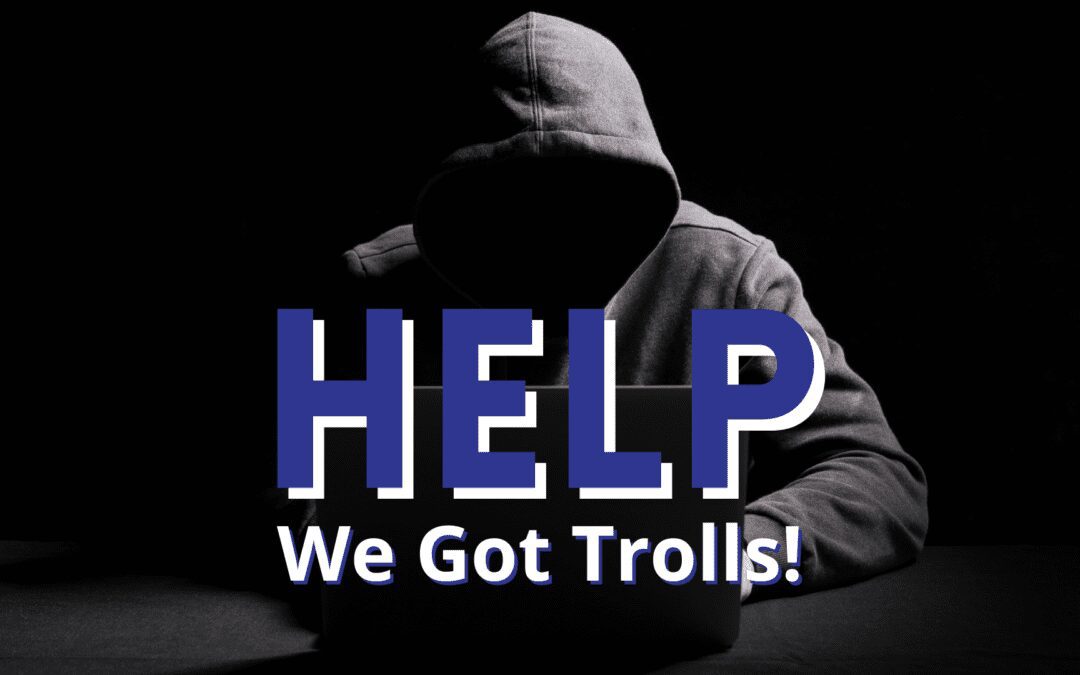How to deal with trolls who invade your online space.
Trolls – magical, mystical, or infamous?
According to the Old Norse sources, trolls are said to dwell in isolated mountains, rocks, and caves, and are rarely described as helpful or friendly. Today’s internet trolls could be described in very similar terms, only they hide behind their digital screens and go out of their way to cause misery and wrath in cyberspace. Trolls from some of the Scandinavian folktales turn to stone when exposed to sunlight, so let’s shed some light on the Internet trolls – shall we?
Troll Definition
Merriam-Webster defines an Internet troll as a person who intentionally antagonizes others online by posting inflammatory, irrelevant, or offensive comments or other disruptive content.
If you have never witnessed a troll in action, please stop reading, step away from your device, and keep your innocence forever. Anyone? Yeah, we didn’t think so. Trolling has become a favorite pastime of many online commentators. But just because it’s happening does not mean we should ignore or normalize it. Here are tips for dealing with the trolls who invade your online space.
Identifying Trolls
Sometimes an unhappy customer who’s had a rough day can come across as a troll in their comment about a product or a service that didn’t meet their expectations. First, take a moment to figure out if that’s the case. Unlike a troll, an upset customer wants to be heard, and most of the time is interested in finding a solution. Responding to negative reviews and resolving issues is a part of successful customer service.
Dealing with Trolls
If you establish that it is not an unsatisfied customer, but someone who intentionally continues to instigate conflict, it is time to – deal with trolls. Recent studies suggest that online interactions largely mirror offline behavior and that among the traits associated with trolling are sadism, narcissism, psychopathy, and lack of empathy. Before you engage, it helps to remember that you are not dealing with a reasonable person who is interested in exchanging ideas, but with a hostile individual who is there to start arguments.
Do not accept their gift of negativity
Trolls thrive on emotional responses – do not accept their gifts of provocation and misery. Read the comment, take a deep breath, and then visualize yourself handing the gift box that is dripping with venom right back to them. It is not yours to keep, accommodate or clean up.
Have a plan in place
Set expectations and share clear guidelines about what is acceptable in your online space. It can be something as short and simple as “Comments made on this page cannot be abusive, contain personal attacks, or be inflammatory, threatening, or profane. We reserve the right to monitor, hide, and/or delete any comments that do not contribute to a respectful discussion.” When a troll shows up, just point them to your no-trolling policy.
Moderate (and block)
Don’t forget that you are the boss. Neither you nor your online community needs to accept troll abuse. If you have a comment policy you can refer to, it will be easier to moderate responses and decide if the person needs a gentle reminder, last chance warning, or a flat-out ban.
Respond but don’t engage
A very popular phrase says to not feed the trolls. Not engaging in lengthy and emotional exchanges is a great rule for social media. But you don’t want to leave social media comments unanswered, because you are not responding to the one commentator only – you are addressing a wide audience of followers. A courteous response showcases your professionalism and gives you an opportunity to set straight any misinformation or disinformation. Stick with one clarifying response though and don’t get dragged into the troll’s muddy cave.
Keep a record
If the trolling crosses the line into bullying, hate speech, personal threats, or other forms of online abuse, take a screenshot, report the troll and block them from your accounts. If needed, alert authorities. While some of the trolls indeed lose interest when they don’t get the response they want (which is attention, chaos, and anger), many of them can and will escalate their trolling behavior. Ignoring abuse does not help the victim, and looking the other way should not be a go-to solution.
At the end of the day, take the trolls for what they are – gloomy creatures sapping happiness from others. Leave them in their caves. Don’t absorb their toxicity. Instead, lead with positivity, compassion, and good humor. Let your light shine!





Recent Comments